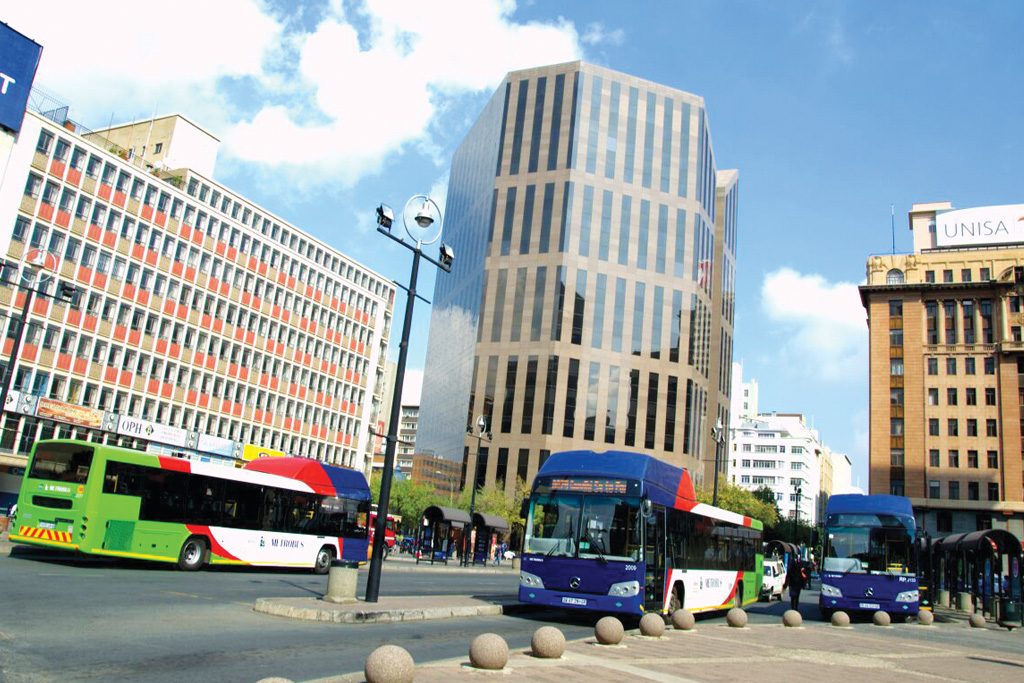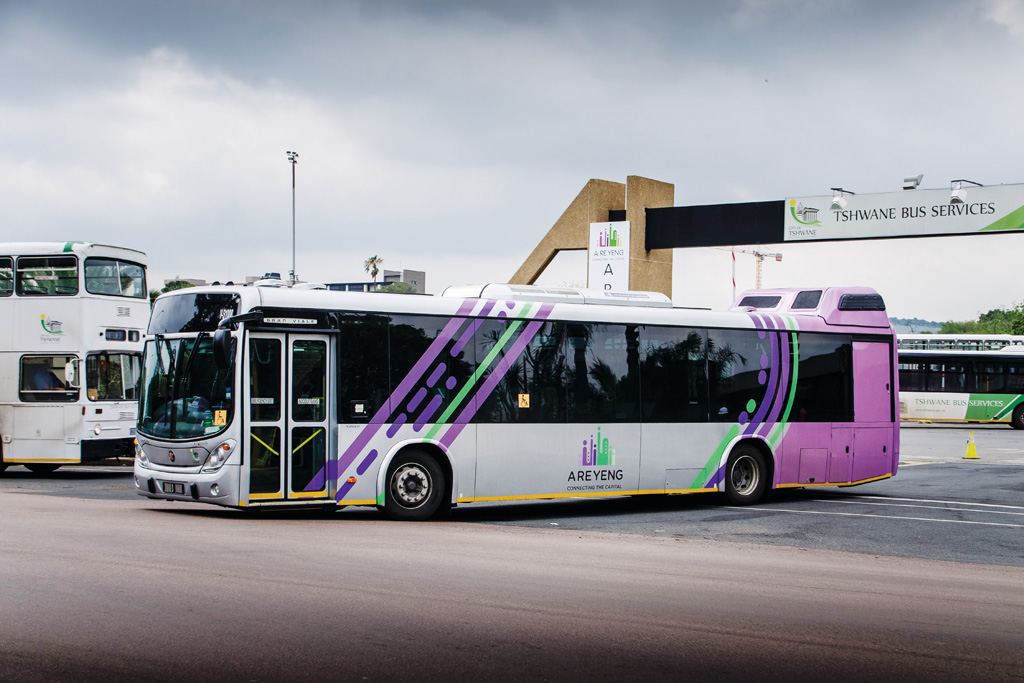More CNG buses for BRT

Bus manufacturers are constantly developing new solutions and technologies to help improve the public transport system. WILLIAM GEORGE looks at the increased use of compressed natural gas (CNG) in bus systems in South Africa.
Cities in South Africa are slowly adopting various sustainable solutions and technologies in order to help improve their public transport systems. This can be seen by the growing number of CNG buses used in public transport. CNG as a source of renewable energy is an effective and safe alternative fuel.
Advantages of the use of CNG include that it is eco-friendly, less maintenance is required, it is economically feasible and there is less noise pollution when compared to vehicles operating on hydrocarbon fuel. The disadvantages include infrastructure requirements and implementation.
Use of natural gas increases in Africa
According to the 2017 Natural Gas Vehicles (NGV) Global Report, there are over 24-million vehicles running on natural gas worldwide. In Africa, there were 192 078 vehicles running on natural gas in 2016, and last year the number increased to 193 509 units.
Although several countries are already accustomed to CNG-powered vehicles, South Africa and other African countries are playing catch-up, while steadily introducing sustainable fuels in their transportation systems.
From an OEM’s perspective
In 2015, the City of Johannesburg (CoJ) launched its first batch of 70 dual-fuel CNG buses. This purchase aimed to provide an example of the city’s commitment to sustainable, environmentally friendly transport. It was also an attempt to support the growth of a local biogas industry.
Ismail Vadi, MEC for Roads and Transport in Gauteng, highlighted the goal of the project: “We want to move away from vehicles using petrol and diesel and we hope the taxi industry will realise that using dual fuel is good for the environment. I hope we keep on the right pathway, because we want to see Metrobus being the best public transport provider in the province.”
A year later, 40 dual-fuel CNG buses were dedicated to public transport for the Tshwane bus rapid transit (BRT) service. This marked Tshwane as the first city in sub-Saharan Africa to operate a full BRT service on CNG.

Both the CoJ’s Metrobus and Tshwane’s BRT buses were manufactured and distributed by Mercedes-Benz. Ravik Sahadeo, product and marketing manager of Bus & Coach at Mercedes-Benz South Africa, says: “The advantages of CNG buses are that they are more environmentally friendly and are cheaper to run than those powered by diesel engines.”
The bus services of these two cities now run at a lower cost while producing fewer harmful emissions. “We aim to continue to be the preferred bus and coach supplier in South Africa. The municipal, commuter and coach segments are all committed to supporting sustainable transport in the country,” adds Sahadeo.
During the launch of Tshwane’s CNG buses, the then mayor of Tshwane, Kgosientso Ramokgopa, noted that these buses will cost 40-percent less to maintain than conventional diesel buses and that these savings can be channelled to improve service delivery in the city.
In 2016, Unitrans subsidiary, Megabus, launched a trial of ten CNG buses in the Free State province. The trial will run for another three years.
Through using CNG, Megabus is expecting to reduce nitrogen oxide emissions by 94 percent, particle emissions by 98 percent, and carbon dioxide (CO2) emissions by up to 90 percent.
Moving towards CNG
There are also developments in the area of training with regard to use of CNG in South Africa. Cummins South Africa has launched a CNG training programme which is presented by fully accredited technicians.
In 2014, CNG Holdings opened the first-ever public CNG fuel station in South Africa. Situated in Langlaagte, Johannesburg, the station aims to contribute towards providing clean energy and reducing transport costs. CNG Holdings is currently converting existing filling stations to offer natural gas as an alternative fuel.
Stephen Rothman, CEO of CNG Holdings, says that this will have a very positive effect on the fuel and operating costs of taxis, which are South Africa’s most accessible form of public transport.
Although there is currently limited infrastructure to support advanced transport solutions, South Africa is still making strides to improving the system, with metros such as Johannesburg, Pretoria and Cape Town, as well as the Free State province, already using CNG in public transport. Hopefully we’ll soon be seeing an increased use of natural gas in the nation’s bus fleets, taxis and other passenger vehicles.
Published by
Focus on Transport
focusmagsa




